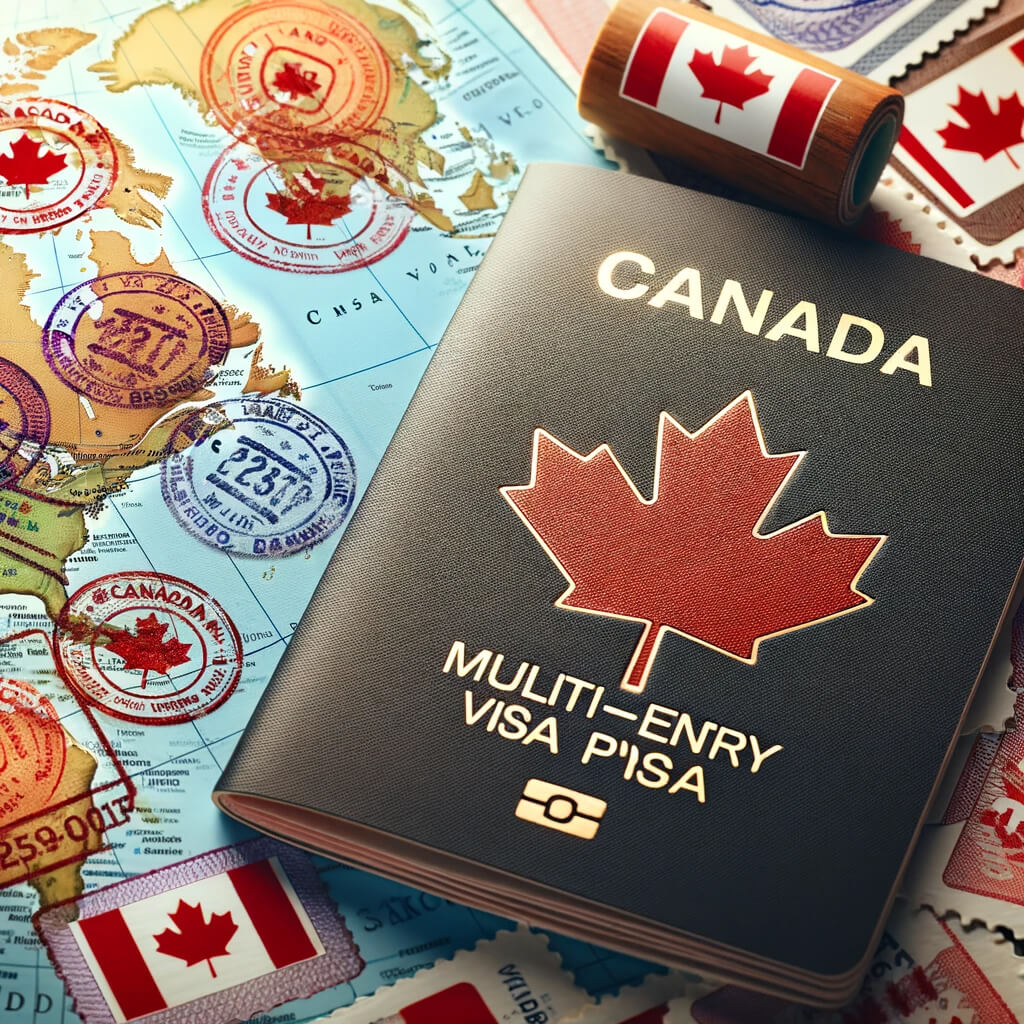Translating Documents for Immigration Canada and IRCC
Your Quick 30-Second Answer to Translating Documents for Immigration Canada
When translating documents for Canadian
immigration, it's crucial to use certified translation services recognized
by Canadian immigration authorities. These documents, often including birth
certificates, marriage certificates, and educational records, must be
translated into English or French. The process involves finding a certified
translator, submitting the necessary documents, and receiving accurately
translated and certified documents. The accuracy of translation is vital for
your application's assessment and adherence to Canadian immigration policies.
Accurate translations can lead to a smoother application process and enhanced
chances of acceptance, making it an essential step in your immigration
journey.
For an in-depth overview, please see the "Table of Contents" below.
Essential Guide to Translating Documents for Immigration Canada
Welcome to our comprehensive guide on Translating Documents for Immigration Canada, where we delve into the intricacies and essential information you need for a successful application process.
TABLE OF CONTENT
Translation in Immigration
1. Your Direct to the Point Answer
2. Translation for Immigration
Standards and Guidelines
3. Guidelines for Translations
4. Manage and Submit Docs
Translation Techniques
5. Tailoring to Programs
6. Ensuring Accuracy & Quality
7. Mastering Translation
Additional Support
8. FAQs to Translating
9. Additional Resources

1. Your Direct to the Point Answer! Translating Documents
Translating Documents for Immigration to Canada
Key Considerations for Document Translation:
- 1. Certified Translation Services: Utilize services accredited by Canadian immigration. These services understand the specific requirements and ensure your documents are accurately translated.
- 2. Eligibility and Language Requirements: Primarily, documents must be in English or French. Essential documents like birth certificates, marriage certificates, and educational records are typically required for translation.
- 3. Canadian Immigration Standards: Adhering to the Canadian government's translation standards is crucial for a successful application.
The Process:
- Find a Certified Translator: Look for translators specifically certified for Canadian immigration purposes.
- Submit Required Documents: Provide the necessary original documents to the translator.
- Receive Translated Documents: Collect the accurately translated and certified documents for your application.
Importance of Accurate Translation:
- Accurate translation is vital for the assessment of your immigration application.
- Ensures compliance with Canadian immigration policies.
Benefits:
- Smooth Application Process: Properly translated documents lead to fewer delays.
- Enhanced Chances of Acceptance: Accurate translations reflect positively on your application's credibility.
Conclusion:
- Engaging a certified translator is essential.
- Adherence to Canadian immigration requirements in translation is crucial for a successful application.
By focusing on these critical aspects of document translation for Canadian immigration, you can ensure your application is accurately represented and meets the necessary standards. Remember, the accuracy of your translated documents can significantly impact the outcome of your immigration application.
2. Understanding Translation Essentials for Immigration

Translation Essentials in Immigration
The Role and Importance in Canadian Immigration
When it comes to immigrating to Canada, translating documents plays a pivotal role. Every applicant must submit supporting documents like birth certificates, marriage certificates, and other legal documents in either of Canada's official languages: English or French. The Canadian immigration system demands precision in translation, ensuring that all information is accurately conveyed. This critical step impacts the overall application process, from express entry to permanent residence.
A professional translator or a translation company recognized by Canadian authorities is essential for this process. They ensure that the translated document meets the specific standards set by Immigration Canada. This includes maintaining the accuracy of the translation, ensuring it's a certified true copy of the original, and sometimes, depending on the document, a notarized translation might be necessary.
Types of Documents Requiring Translation
Commonly Translated Immigration Documents
The spectrum of documents required for immigration purposes is broad. Apart from personal documents like birth certificates and marriage certificates, there are various official documents and immigration documents that need translation. This can include educational qualifications, work experience letters, and legal documents for legal purposes.
In cases where a family member is involved in the application, their documents, such as certified translation of diplomas, might also require translation. It’s important to understand that these translations are not just for procedural compliance but play a crucial part in the assessment of the Canadian immigration application.
3. Canadian Immigration Translation Standards Requirements

Official Document Translation Standards
Guidelines for Acceptable Translations in Canada
Navigating the official document translation standards for Canadian immigration is a critical step. The Canadian immigration authorities require that all documents not originally in English or French be accompanied by a professional translation. This includes documents like birth certificates, marriage certificate, and any other official documents needed for the immigration Canada process.
The translated documents must adhere to the specific guidelines for acceptable translations in Canada. These guidelines ensure that the translations of documents maintain the good quality and accuracy of the translation necessary for immigration purposes. For instance, a French translation must be as accurate and legally valid as one in English, reflecting the country's status as a bilingual nation with official languages being English and French.
Certification and Verification
Process of Certifying Translations for Immigration Purposes
The process of certifying translations for Canadian immigration involves several key steps. A certified translation of documents must be done by a professional translator or translation company that holds a membership number with a recognized translating body, ensuring they are in good standing. This certification guarantees that the translated document is a true and accurate representation of the original document.
Often, the process may require the involvement of a notary public or a commissioner of oaths to attest to the authenticity of the documents. In cases where the original document is not available, a certified true copy of the original might be used for translation. It's important to note that for immigration purposes, such as a citizenship application or permanent residence application, the strict adherence to these standards is non-negotiable.
4. Practical Aspects of Translation Handling Original Documents

Handling Original Documents
Managing and Submitting Original Documents for Translation
When translating documents for immigration Canada, handling original documents is a procedure that demands utmost care. The first step is to determine if the original or a certified copy of the original document is needed for translation. This varies based on the document type and the requirements of Immigration Canada. For citizenship applications or permanent residence applications, applicants are generally required to submit a certified translation of the original documents. This includes sensitive documents like birth certificates, marriage certificates, and other legal documents.
It is essential to ensure the copy of the document is clear and legible, as this will affect the accuracy of the translation. In some cases, especially when dealing with government institutions like Canada Revenue Agency or Immigration Refugee agencies, a notarized translation may be required. This involves getting the translation certified by a notary public, adding an extra layer of verification.
Creating Certified Copies
The Process of Making and Certifying Copies of Original Documents
The process of creating certified copies of original documents for translation is a crucial step in Canadian immigration applications. A certified copy is a duplicate of an original document that has been declared to be a true copy by an authorized person, such as a notary public or a commissioner of oaths.
When a certified copy is used for translation, the translator or the translation agency must certify that the translation is an accurate representation of the certified copy. This is important for documents from different countries and in different languages. The certified translation should include the translator's signature, their membership number with a recognized translating body, and sometimes a seal to confirm their good standing. The process ensures that the translated documents submitted to Canadian immigration authorities are accepted as valid and accurate representations of the original documents.
5. Special Considerations in Translation for Different Immigration Programs

Translating for Different Immigration Programs
Tailoring Translations to Specific Canadian Programs
When translating documents for immigration Canada, it's vital to tailor translations to specific immigration programs like Express Entry, Provincial Nominee Program, or Canadian Permanent Residency. Each program may have unique requirements for document types and presentation. For example, an Express Entry application might focus on work-related documents, while a family member sponsorship could require personal documents like marriage certificates. Understanding these nuances ensures that your documents align with the specific criteria of the Canadian immigration pathway you choose.
Challenges and Solutions in Document Translation
Addressing Common Issues in Translating for Immigration
Translating documents for immigration can be fraught with challenges, especially when dealing with different languages and legal requirements set by Canadian translators and government agencies. Common challenges include translating legal documents for legal purposes such as visa applications or citizenship Canada processes, and ensuring the official translation of the original document meets the stringent standards of Immigration Canada.
To address these challenges, it's advisable to work with a translation provider who is familiar with Canadian immigration applications and the translation process. Such providers will be aware of the official purposes and specific requirements of Canadian immigration authorities, including the need for certified translation of documents and, in some cases, notarized translation. They also understand the importance of the presence of an authorized person in the certification process, which adds to the credibility of the translation.
6. Beyond the Basics Advanced Translation Techniques

Advanced Translation Techniques
Ensuring Accuracy and Quality in Translations
Advanced translation techniques are crucial in translating documents for immigration Canada, especially when dealing with complex documents such as marriage certificates or educational diplomas. Accuracy and quality are paramount, as even minor errors can lead to delays or rejections in the immigration process. Certified translators often employ sophisticated methods to maintain the proper translation and consistency with the original document standards of Canada. This includes adhering to the specific linguistic trends and demands, considering Canada's diverse linguistic landscape. For example, a translator proficient in foreign languages like Mandarin or Arabic might be necessary for applications from certain regions, reflecting Canada's multilingualism.
Navigating the Translation Industry
Selecting the Right Translation Service for Your Needs
Choosing the right translation service is a critical step in the immigration process. The ideal service should offer a quick turnaround within 1-3 business days, professional translators with expertise in different languages, and certification process compliance. Translation services like Idiomatic Canada and PoliLingua offer specialized support for Canadian citizenship and permanent residency applications, ensuring customer support team assistance and worldwide acceptance of their translations.
Translation companies should provide notarized translations when required and be familiar with the specific needs of government institutions like Immigration, Refugees, and Citizenship Canada (IRCC). They should also be capable of handling translations for various immigration programs such as work permits, study permits, and visa applications. It's essential to choose a provider that guarantees the legality and official translation of the original document, meeting the high standards set by Canadian authorities.
7. Mastering the Art of Document Translation for Canadian Immigration

In wrapping up this comprehensive guide on translating documents for immigration Canada, it's evident that a meticulous and knowledgeable approach is essential. From the initial understanding of translation requirements to navigating the intricacies of the translation industry, each step is pivotal in ensuring a successful immigration application.
1. Key Considerations for Successful Document Translation:
- Ensure all marriage certificates, educational institution diplomas, and other essential documents from your home country are translated accurately.
- Work with cttic-certified translators who understand the target language nuances and legalities.
- Collaborate with insurance companies and interpreters council if necessary, for specific translation needs.
2. Practical Tips for Applicants:
- Maintain a list of documents needed for translation and verify each against Canada Post requirements.
- Always keep a copy of your original document and ensure the translation is a certified true copy.
- Consider the additional cost and business hours of the translation service for efficient planning.
3. Advanced Strategies:
- Engage a project manager or official translator for large-scale or complex translations, such as those involving a common-law partner or visa application.
- Utilize the services of a translator who can work within 1-3 business days for urgent needs.
- For those in British Columbia or dealing with provincial governments, ensure translations meet regional requirements.
4. Navigating the Translation Industry:
- Seek free quote form services from reputable companies like DocsBase Canada for budget planning.
- Understand the role of federal court approved translations, if necessary.
- Leverage the expertise of translators familiar with global affairs Canada and provincial associations.
5. Additional Resources:
- Utilize academic institutions for educational document translation.
- If your native language isn't English or French, ensure your translator is adept in both your language and the target language.
- For businesses and individual clients, customized translation solutions can be explored.
In summary, whether you're an individual or a business, understanding and utilizing the right translation resources and services is a good idea. It ensures that your journey through the Canadian immigration process is smooth and free from linguistic barriers. Remember, the key to success lies in attention to detail, professionalism, and choosing the right partners in your translation journey.
8. FAQs to Translating Documents for Immigration Canada

What Is the Required Show Money for a Canada Student Visa?
What Is the Required Show Money for a Canada Student Visa?
Applicants must show sufficient funds for tuition fees, living expenses, and return transportation. The exact amount depends on the study program's duration and the applicant's specific circumstances.
Can Bank Statements From a Joint Account Be Used as Proof?
Can Bank Statements From a Joint Account Be Used as Proof?
Yes, bank statements from a joint account are acceptable, as long as they clearly indicate the applicant's name and demonstrate sufficient available funds.
Are Education Loans Accepted as Proof of Financial Support?
Are Education Loans Accepted as Proof of Financial Support?
An official loan approval letter from a recognized financial institution can serve as proof of financial support.
How Recent Should My Financial Documents Be?
How Recent Should My Financial Documents Be?
Financial documents, like bank statements, should generally be recent, preferably not older than six months from the visa application date.
Can I Use a Scholarship as Show Money?
Can I Use a Scholarship as Show Money?
An official scholarship letter specifying the amount and duration can be used as part of the financial proof for the visa.
What Is the Role of a Sponsor in My Student Visa Application?
What Is the Role of a Sponsor in My Student Visa Application?
A sponsor, often a family member, can provide financial support. Necessary documents include a letter of sponsorship and proof of the sponsor's financial capability.
Do I Need to Show Money for Living Expenses for My Entire Stay in Canada?
Do I Need to Show Money for Living Expenses for My Entire Stay in Canada?
Proof of funds is required for the first year of stay in Canada. For longer study programs, there should be a plan to fund subsequent years.
How Can I Prove Funds If My Parents Are Supporting Me Financially?
How Can I Prove Funds If My Parents Are Supporting Me Financially?
You can present your parents' bank statements along with a letter confirming their financial support during your studies.
Is a Bank Draft Acceptable as Proof of Funds?
Is a Bank Draft Acceptable as Proof of Funds?
A bank draft in a convertible currency is acceptable, provided it is readily transferable into Canadian dollars.
Can I Use Funds From a Recent Large Deposit as Show Money?
Can I Use Funds From a Recent Large Deposit as Show Money?
Recent large deposits need a clear history and source of funds explanation to avoid complications during the visa process.
These FAQs provide further clarity on various aspects to translating documents for immigration Canada. Always refer to official guidelines and consult with immigration experts for the most accurate and up-to-date information tailored to your specific situation.
9. Additional Resources for Translating Documents for Immigration Canada
To further assist you in your journey, here is a list of helpful websites and organizations on translating documents for Immigration Canada:
- Translation of Supporting Documents for Applications
- Immigration, Refugees and Citizenship Canada (IRCC)

Kamal Akhtar is a Canadian immigration lawyer licensed by the Law Society of Ontario. Based in Ontario, Canada. Kamal has years of experience helping foreign nationals with immigration applications and appeals. He specializes in Canadian immigration law and other complex entry solutions. Kamal dedicates himself to delivering honest, strategic, and client-centered legal solutions for every case.
Kamal's credentials include a Bachelor of Law (LL.B.) and a Master of Law (LL.M.) from Osgoode Hall Law School in Toronto. Kamal is a noted member of professional associations like the Canadian Immigration Lawyers Association (CILA), the Canadian Association of Professional Immigration Consultants (CAPIC), the Canadian Bar Association (CBA), and the Ontario Bar Association (OBA). Over 20 years of legal experience shape Kamal's insights.
Please note that the information provided on this website does not constitute legal or professional advice.
Phone: +1 (289) 216-4666 | Fax: +1 (289) 778-4745 | Email: info@kamallaw.ca



